SUMMARY
This is AI generated summarization, which may have errors. For context, always refer to the full article.
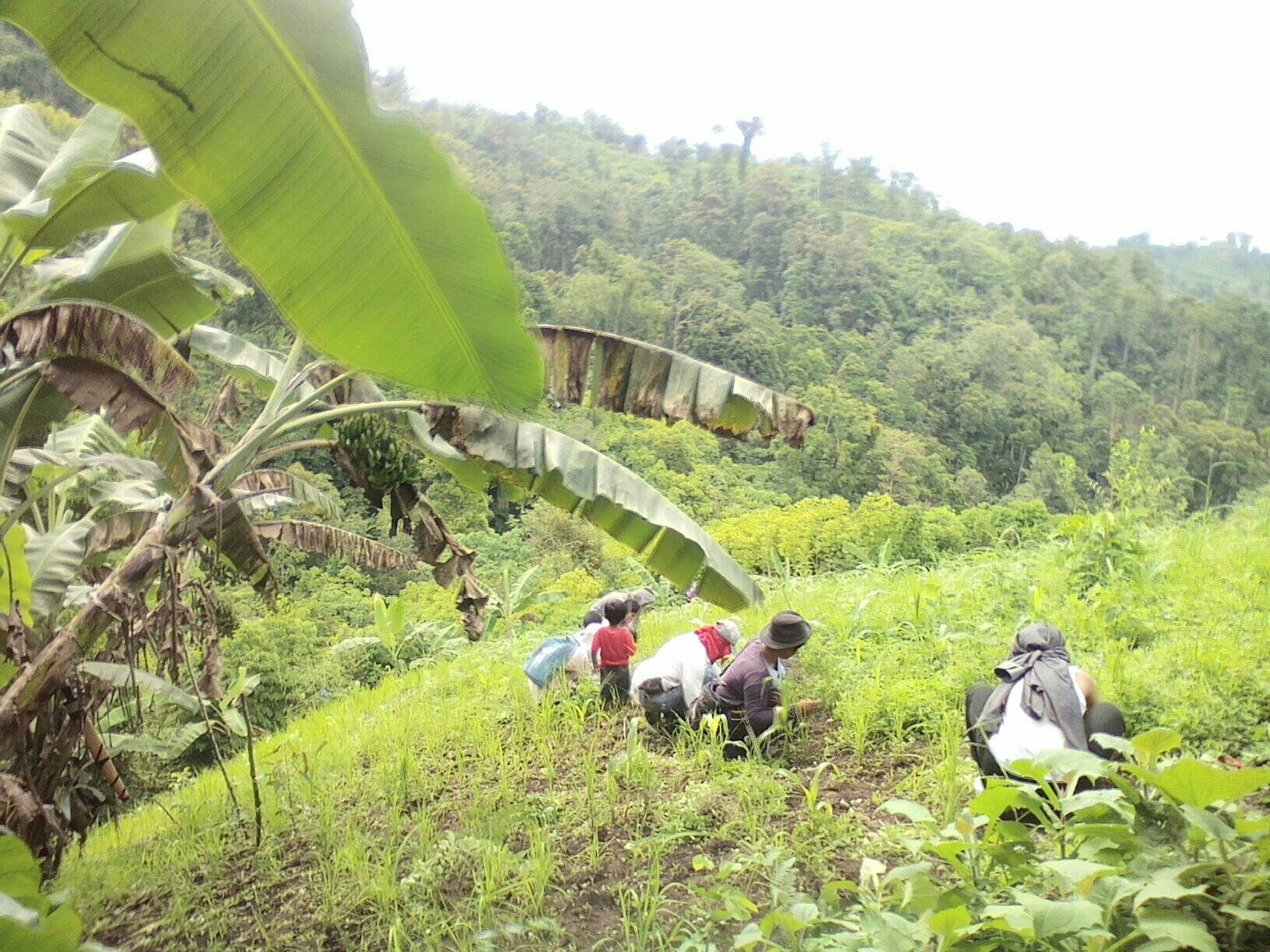
DAVAO CITY, Philippines – Erratic weather patterns do not bother Ranel Samulde, a 44-year-old Tboli farmer in the Soccsksargen region while he waits for the palay he planted last April to be harvested this September.
He recalled that even if the temperature seems high during the day and rains start to pour in the afternoon on their elevated, sloping terrain field, he cultivated the land with a plow to plant more than 10 traditional rice varieties.
After two months, he checked if the grains had been healthy and free from pests.
Samulde, always hoping for a bigger yield, does not use fertilizers and sticks to the traditional farming his father taught him years ago.
“We need to have safe rice that is free from chemicals. It has been economical for me because I do not have to buy fertilizers and insecticides. I still get the same yield of around 60 sacks. The soil has fewer pests and remains fertile after the harvest,” he said.
For decades, his tribe’s food system was disrupted and disregarded due to the introduction of commercial farming practices involving synthetic fertilizers and chemicals.
The cultivation of high-value crops like bell peppers, tomatoes, and genetically-engineered corn led to the decline of locally grown aromatic upland rice varieties.
As upland rice varieties were replaced by hybrids, the traditional farming practices of the Tboli gradually faded, leaving only a few practitioners.
But with the establishment of the demonstration farm, the bayanihan spirit (communal cooperation) was reignited within the Tboli community, uniting them with a common goal: to rejuvenate the cultivation of traditional upland rice.
Overlooking the famed Lake Sebu and the ancestral domain of the Tboli in South Cotabato province, the mountainside farm radiates with the colors of palay (unhusked rice), root crops, vegetables, and fruits – all organically grown without the use of synthetic and harmful fertilizers and chemicals.
In Sitio Tenetem, Barangay Lamlahak, Lake Sebu town, a one-hectare demonstration farm is being run by a group of Tboli farmers called Lem Bulul Farmers Association (LFA).
The group has been planting seeds of indigenous crop varieties in the demo farm and promoting bayanihan to ensure sustainability, said LFA chair Lida Samal.
Rice cultivation, explained LFA secretary Welna Samulde, primarily serves their families’ domestic consumption.
“We do not sell our harvest in the market. We ensure the entire family is provided for,” she said.
The indigenous farmers from the three villages of Lake Sebu agreed to initiate seed banking and trial farms, retracing old steps and utilizing tested and proven traditional seeds.
The trial farms have evolved into social activities, engaging everyone in the characterization and maintenance of crops.
‘Seed expedition’
Motivated by the desire for a plentiful harvest of diverse crop varieties, the LFA launched a concerted effort to collect and document heirloom crops, especially grains still cultivated by the Tboli in upland farming communities around Lake Sebu.
Lake Sebu, one of the Philippines’ vital watersheds, significantly contributes to irrigation in the provinces of Sultan Kudarat and South Cotabato. The lake is traditionally inhabited by the Tboli and Ubo tribes.
From June 8 to 11, 2022, the LFA, in collaboration with Masipag-Mindanao, embarked on a search for traditional crops.
Masipag, renowned for its farmer-led rice breeding practices, aimed to explore farmer-led vegetable breeding during a workshop with its partners.
The seed expedition predominantly focused on squash while also scouting for upland rice varieties.
Squash, a collective name for several plant species in the genus Cucurbita, is grown for its edible fruits. It thrives as trailing vines or bush-like plants, producing yellow or orange flowers and fruits of varying shapes and sizes with smooth or ridged skin.
Eight squash varieties were identified: Basuk ibid, basuk lemnaw, basuk blawon, basuk bukay, basuk kabang basuk, lagiling/boling, basuk bisaya, and basuk saboy. These were discovered in the farming communities of Lamfugon, Bacdulong, and Lamlahak.
The Tboli’s basuk serves as a survival and subsistence crop. The fertile soil in the region allows it to flourish anywhere, yielding fruits within three months. It thrives in sloping terrain, tolerates shade and weeds, and is propagated using seeds and cut runners.
The LFA and Masipag team also identified 16 varieties of palay seeds from the sub-villages of Lamfenek, Sentro, and Lamsafang in Barangay Lamfugon, as well as four corn varieties from sitios Lamfenek and Lamsafang.
Gary Ben Villocino, Masipag’s organizational development officer, said they were amazed at finding 10 traditional rice varieties for the first time in Barangay Khlubi alone, showing the diversity and richness of crops, particularly in upland areas.
Research on farming and seed conservation practices of rice farmers in 2008, led by Florence Lasalita-Zapico, found 136 landraces in the marginal uplands of Lake Sebu, indicating a high level of genetic diversity of upland rice cultivars.
The search for seeds shed light on the loss of traditional rice varieties, marking the first time LFA members encountered such diversity and reinforcing the need to preserve seeds, echoing the practices of their tribe.
Palay seeds are preserved using a T’do, an indigenous rice seed preservation method that safeguards them from rodent damage. This involves dried bamboo capped with rice straws tied using a rubber band for protection.
Donya Dolo from Sitio Lamsafang, Barangay Lamfugon, said they have continued to practice this to this day.
Melba Omboy-Relon, a rural development worker, said the Tboli offer a range of food sources, and their practices enhance environmental diversity, aiding farmers in preventing crop failures.
For Masipag-Mindanao, the seed expedition marked a breakthrough, leading the LFA to harvest traditional basuk and share it with various farmers’ organizations in Davao and Surigao cities.
Fuentes said indigenous peoples in Luzon are likely to replicate this practice, encouraging other indigenous farmers in Lake Sebu to become partners.
Challenges
Yet, as settlers in Lake Sebu’s upland communities, the Tboli face challenges posed by extreme weather due to climate change, rat infestations, and crop conversion. These hinder their ability to sustain natural, traditional farming methods using heirloom seed varieties.
During lean months, farmers plant hybrid corn that uses large amounts of glyphosate, a herbicide that kills weeds and grasses affecting soil fertility.
“They can no longer plant rice on their farms,” Villocino said.
The Department of Agriculture (DA), according to Welna Samulde, has been distributing high-yield variety crops to farmers which require the use of fertilizer and can only be planted once.
“I buy everything in commercial rice farming, even the seeds. Expenses incurred, especially during harvest time, are much greater than the yield. It is a cycle that I have encountered in the past planting synthetic corn,” said farmer Lito Samulde.
He said he saw the difference between traditional and commercial rice. And for him, planting back traditional rice varieties has been cost-efficient.
The LFA group said it was working to bring back the traditional crops and the use of indigenous knowledge in farming.
One of its ways is the annual celebration of the Pinipig Festival, co-organized by Masipag-Mindanao and the local agriculture office, since 2021.
Pinipig is a flattened rice ingredient. It is made from immature grains of glutinous rice, pounded until flat, before being toasted.
“I am truly thankful that we did this (Pinipig Festival) because, for almost 30 years, the tradition of making pinipig has been lost here in Lake Sebu,” said Melissa Dizon, a member of LFA.
The Tboli farmers say they strive not just to bring back their traditional crops but also their indigenous practices, one step at a time. – Rappler.com
Add a comment
How does this make you feel?










![[ANALYSIS] How one company boosts farmer productivity inside the farm gate](https://www.rappler.com/tachyon/2024/06/bioprime-farmgate-farmer-productivity-boost.jpg?resize=257%2C257&crop=465px%2C0px%2C1080px%2C1080px)

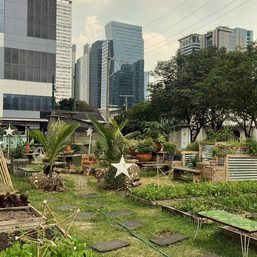





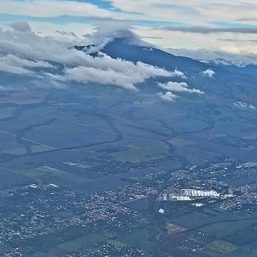
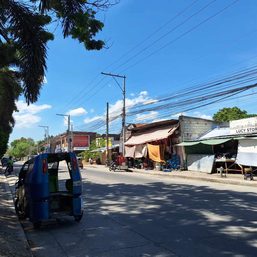




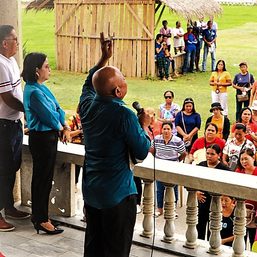
There are no comments yet. Add your comment to start the conversation.